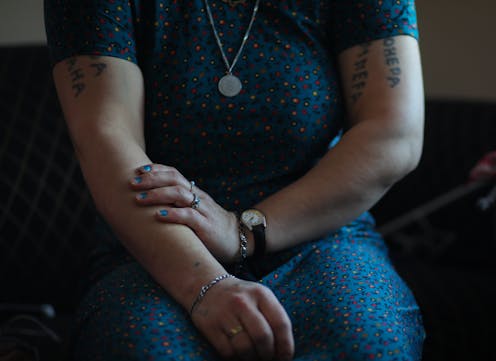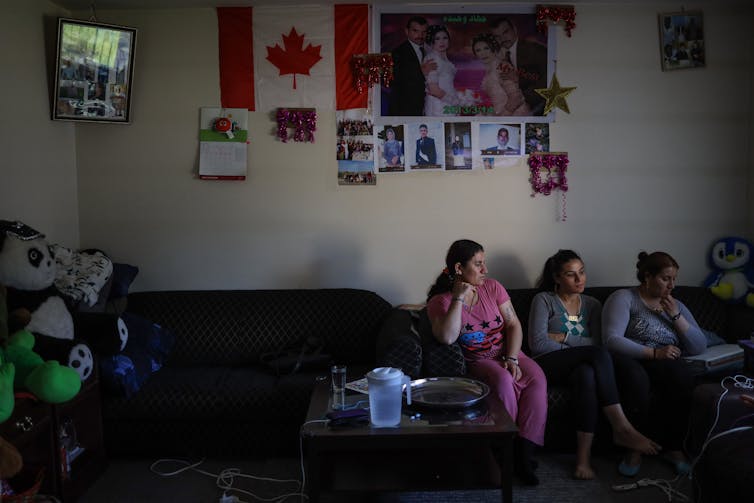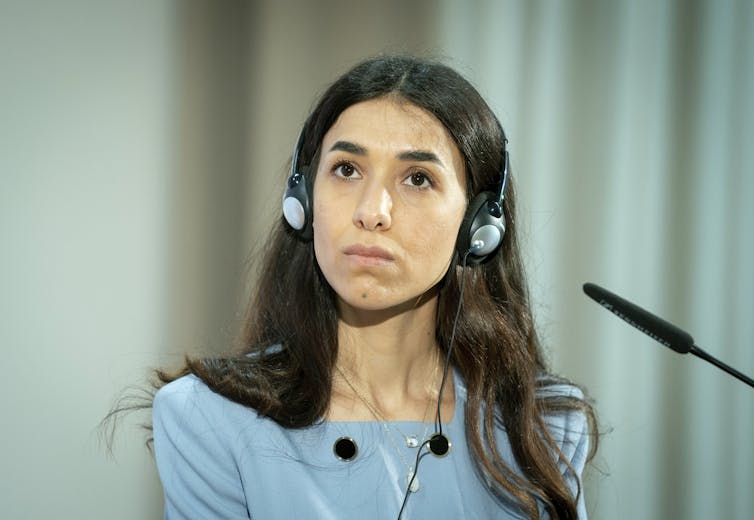
Weeks after Yazidi refugees were rescued from horrific captivity and enslavement imposed by Daesh (also known as ISIS) and arrived in Canada, we began to document the harm.
At the Mosaic Refugee Health Clinic in Calgary, we tallied the physical damage, mental trauma and how families were ripped apart.
Our new patients’ intent was clear: They wanted the world to know. They insisted that the atrocities of genocide should never be forgotten and the culprits face justice. Beyond holding the guilty accountable, they also wanted to restore fragments of the familial and communal societies from which they’d been uprooted.
After centuries of religious persecution, their community had been dealt a deadly blow in August 2014. A massacre — labelled a genocide by the United Nations — resulted in approximately 200,000 displaced Yazidis, 7,000 murdered, 7,000 women and children abducted into enslavement, and the destruction of farms, villages, homes and places of worship.
These are the narratives shared by Yazidi refugees who were resettled through Canada’s Survivors of Daesh Program in Calgary and three other major Canadian cities between 2017 and 2019. Although our clinic is one of the largest and longest-running specialized refugee health clinics in Canada, the rapid resettlement of 242 Yazidi refugees nearly broke us.
Their stories were profoundly vivid, their trauma piercing. They gave horrific accounts of Daesh’s invasion and the ensuing genocide, recounting their enslavement, slaughter and forced indoctrination.

We tried to listen empathetically, without judgement — unaware that doing so all but guaranteed a crippling vicarious trauma that led to intense symptoms of post-traumatic stress disorder among our physicians, nurses and other health-care staff.
Over time, with immense effort, patients and providers began to heal together. Our Yazidi patients have launched their new lives, and are chasing ambitious dreams.
As part of this healing, they tasked us with ensuring the world would not forget their plight. As co-directors of Refugee Health YYC — a research, education, and innovation platform at the University of Calgary — we obeyed. With our research team and Nour Hassan, an undergraduate student in the Health and Society program, we began the process of meticulously investigating and documenting the harm through research.
Documenting genocide
We reviewed the medical records of every Yazidi patient at the Mosaic Refugee Health Clinic. We recorded the direct exposure to Daesh and nearly universal family separations. We assembled a panel of expert clinicians to review almost 1,400 individual diagnoses and determine which were most likely caused by exposure to Daesh. We found, in addition to the psychological trauma, the physical consequences of violence, starvation and rape.
To ensure our findings were accurate and meaningful, we collaborated with the Yazidi community and their leaders, one of whom is still languishing in an internally displaced camp in northern Iraq. The group provided insights, offered recommendations and made edits. We listened and obeyed.
“When genocide is committed, it must be seen.” – Yazidi refugee, Nobel Peace Prize laureate and human rights activist Nadia Murad
The resulting research is a community- and clinician-engaged cross-sectional study, which was recently published in the JAMA Network Open. Though our methodology was simple and the output inefficient from a research perspective — it took us nearly four years to summarize the ordeals of 242 Yazidi genocide survivors — this stands among the research we are most proud of.
We offer it as a testament to the world, documenting the depths of human depravity and its darkest impulses. The horrors of genocide defy comprehension, but in our ongoing struggle for human rights amid increasing global displacement, we must confront them. So far, we are failing.
Yazidi refugees are calling on the world to open its eyes to genocide, while indiscriminate killings and violence against women and children are, yet again, being used as weapons of war in Afghanistan, Ukraine and Sudan.
In Calgary, a city leading the country in per capita refugee resettlement among major urban centres, we’ve resettled approximately 24,000 refugees since 2015, surpassing the total for all of British Columbia, and nearly the number received by Manitoba, Nova Scotia, New Brunswick, P.E.I. and Newfoundland combined.
We’re proud of this work, carried out largely behind the scenes by passionate coalitions across the settlement, health care, public health and education sectors. Our efforts are boosted by a welcoming and generous population that opens its doors to those in need, regardless of local challenges.
Refugee health policy summit
In the final act of healing, Refugee Health YYC will host Yazidi refugee, Nobel Peace Prize laureate and human rights activist Nadia Murad in Calgary, a refugee health policy summit, and for the first time, the North American Refugee Health Conference July 21-23.

These events will bring together health-care providers, researchers, policymakers and refugee leaders to learn from one another and develop new models to improve health care and well-being for the 108.3 million people forcibly displaced around the world. Among these, only two per cent are resettled each year. The rest remain trapped in unstable and unsafe situations, often in countries that are not their homes.
These small offerings symbolize our commitment to work alongside refugees, as Canada again led the world in the number of refugees resettled in 2022. They underscore our dedication to ensuring the world never forgets the horrors of genocide and its devastating multi-generational impact on the communities targeted.
Our Yazidi patients arrived in Canada, courageously telling their stories. We need to listen. Otherwise, the crimes committed against them, and other refugees, will be repeated.
Gabriel E. Fabreau MD, MPH, FRCPC receives research grants from the Canadian Institutes of Health Research (CIHR), Alberta Innovates, MSI Foundation, and the University of Calgary. The work presented and the study it describes were unfunded.
Annalee Coakley does not work for, consult, own shares in or receive funding from any company or organisation that would benefit from this article, and has disclosed no relevant affiliations beyond their academic appointment.
This article was originally published on The Conversation. Read the original article.







